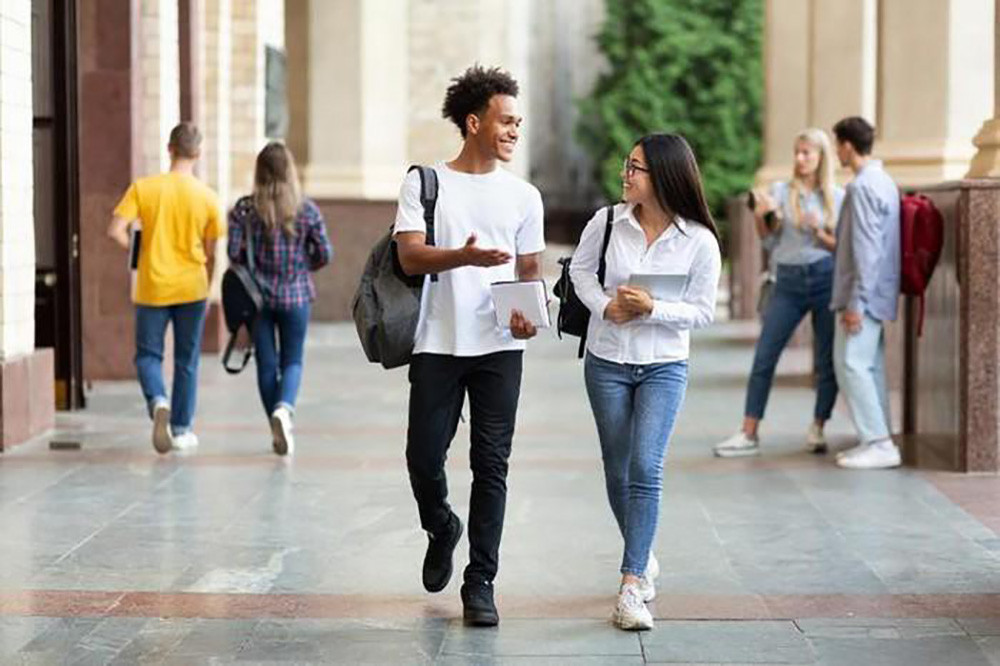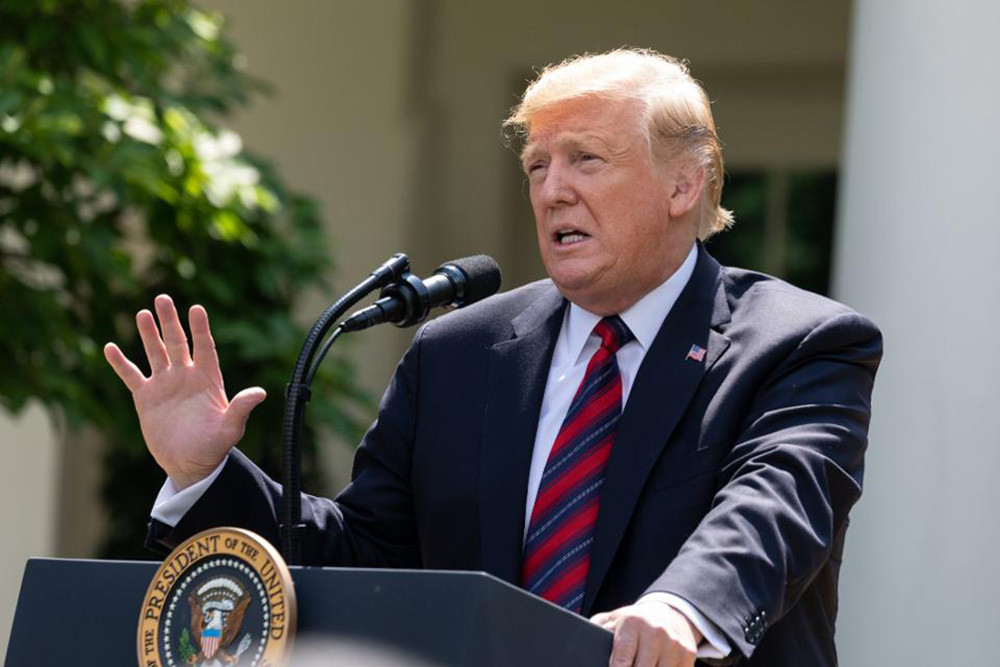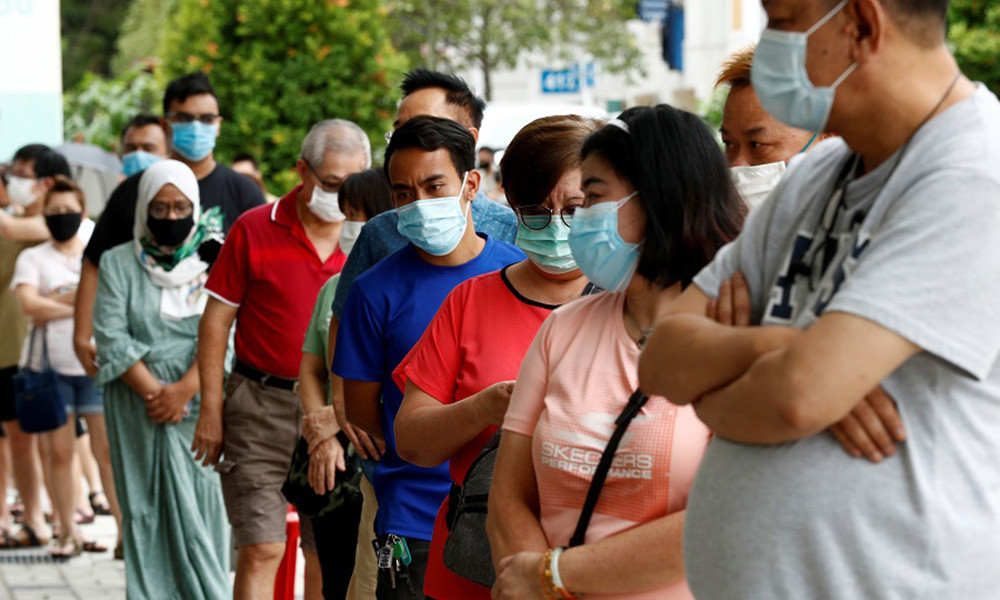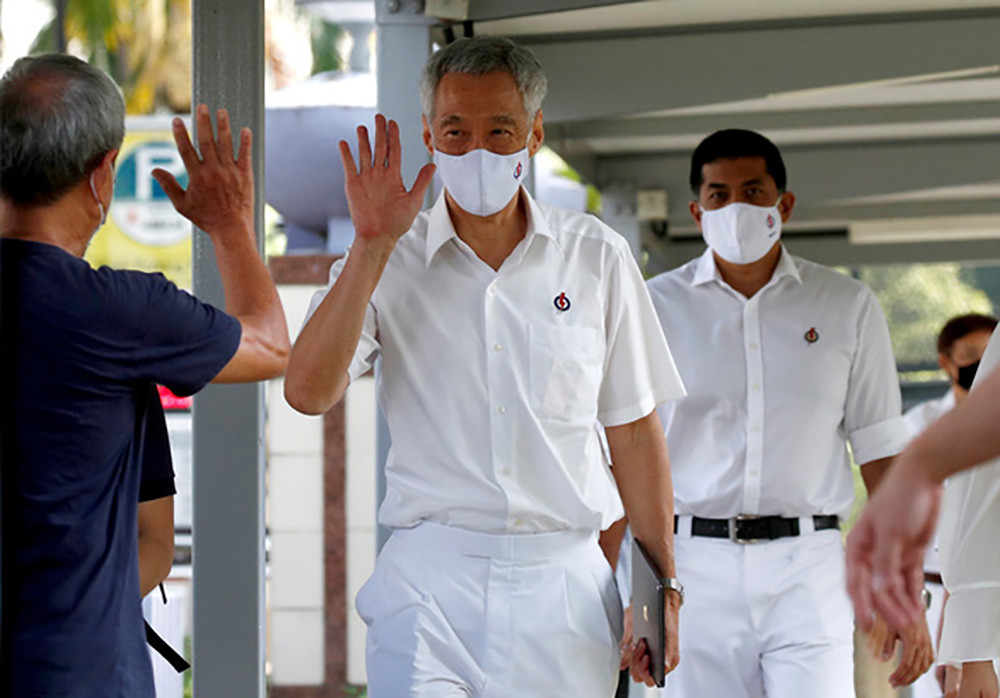The world last week: Unprecedented things
(Baonghean.vn) - The Trump administration has made a controversial announcement warning foreign students studying in the US that they will have to return home if their schools switch to online learning. Prime Minister Lee Hsien Loong's People's Action Party won the Singapore election, but the vote share was not as high as expected, posing many challenges for the government in strengthening voters' trust. These are the international issues that have received attention this past week.
Sitting on the fire
International students will have to leave the US if their university is only online starting this fall; or if they want to stay, they will have to transfer to other educational institutions that are still offering in-person classes. Those who stay will be considered illegal residents. The change applies to international students pursuing degrees and certificates in the US who hold F-1 and M-1 visas. These are the core contents of the announcement announced by the US Immigration and Customs Enforcement (ICE) on July 6. The new US policy is considered a "rigid solution to a complex problem", and causing more "chaos and instability".
 |
| Major universities have filed a lawsuit against the US government over new regulations for international students. Photo: Getty |
“When colleges and universities move entirely online, it sends the message that America is not safe from the virus. This certainly does not help President Trump’s reelection bid in November. Therefore, he wants schools to open in the fall.”
The new policy could mean more than 1 million international students could be forced to stop studying in the US, but for officials in the Trump administration, it is a last chance to accelerate, long-term changes to America's anti-immigration agenda.
The new visa policy not only affects international students, but also affects the people and interests of the United States. Stephen Yale-Loehr, a professor at Cornell Law School and an advisor to the American Policy Foundation, said: "This new move is hurting, not helping, the country's economy."
Losing large numbers of foreign students would be a major blow to the finances of American universities, potentially affecting domestic students as well. According to analysis by the National Association of International Educators (NAFSA), foreign students studying at American colleges and universities contributed $41 billion to the US economy and supported 458,290 jobs in 2018-2019.
Faced with that situation, two prestigious American universities, Harvard University and Massachusetts Institute of Technology, filed a lawsuit against the Trump administration in federal court on July 8. The lawsuit asks the court to issue a ruling blocking the decree, preventing the Department of Homeland Security and the US Immigration and Customs Enforcement (ICE) from initiating deportation proceedings for international students if they do not transfer to schools with in-person classes. The lawsuit states that ICE's policy violates the Public Procedure Act by putting schools in a "dilemma" and putting great pressure on international students when the fall semester is just a few weeks away, making it impossible to find and enroll in a new school.
 |
| President Donald Trump. Photo: Getty |
Students are currently “sitting on fire”. The countries with the most students studying in the US are China, India, South Korea, Saudi Arabia, and Canada. Currently, only Harvard has come up with a new plan. That is, next school year, Harvard will only allow 40% of students to study in person in the classroom, mainly freshmen, the rest will study online. However, to study in person in the classroom, students still have to be checked for health and ensure social distancing.
Harvard is a large university, and in Massachusetts, the epidemic has decreased sharply, but for other schools with smaller resources and in states with stronger outbreaks, students have no choice but to return home or transfer to another school, if possible.
Unexpected victory
More than 2.65 million voters in Singapore went to the polls to elect the 14th National Assembly and the new Government of this country, strictly following measures of wearing masks, washing hands, and wearing gloves before entering the voting booth. This is an unprecedented election in the island nation because it took place right in the middle of the Covid-19 pandemic and the economy is in a severe recession, many people are unemployed. The election recorded a record number of 11 parties participating in the election. The victory was as predicted, the advantage belonged to the People's Action Party (PAP) of Prime Minister Lee Hsien Loong. However, the percentage of popular votes for PAP was not as high as expected, reaching 61.2%, down from 70% in 2015.
 |
| Voters wear face masks as they line up to vote in Singapore on July 10. Photo: Reuters |
The election results are said to reflect Singaporeans' assessment and uncertainty about the government's response to Covid-19 and the next generation of leaders.
Singapore has one of the lowest Covid-19 death rates in the world and is considered a model for fighting the pandemic. However, a second wave of infections in cramped dormitories for migrant workers has shattered Singapore’s image, with the country becoming the most affected country in Southeast Asia. The situation has forced the government to close schools and businesses for an extended period, while the economy has continued to decline.
Reuters news agency commented that in the context of the country's economy still being gloomy due to the pandemic and facing many potential risks, most Singaporeans do not want to change the government's leading party. Therefore, Prime Minister Lee Hsien Loong's PAP party is completely confident and proactive in passing key policies. The PAP has been in power since Singapore became an independent island nation in 1965. However, PAP leaders are also under pressure to improve their voter support rate after the election results.
This election also takes place at a time when the PAP is in a generational transition. More importantly, this could be the last time Prime Minister Lee Hsien Loong runs for office. The leader of the Lee family has declared that when he finds a successor, he is ready to leave politics after this election, before he turns 70.
According to CNBC, Mr. Lee Hsien Loong’s successor could be Deputy Prime Minister and Finance Minister Wong Swee Ket. Wong Swee Ket and several other government officials, often referred to as the 4G generation of leaders, have been at the forefront of planning the fight against the Covid-19 pandemic. These figures are expected to play a leading role in the PAP in the upcoming election.
 |
| Prime Minister Lee Hsien Loong arrives at the nomination center before election day. Photo: Reuters |
But even if the PAP continues to rule, it is unlikely that Heng Swee Ket will immediately become prime minister. The pandemic has made Prime Minister Lee Hsien Loong rethink his resignation announcement, as he has said he will only hand over a “whole and functioning” Singapore to the next generation of leaders, rather than a country in disarray due to Covid-19.
